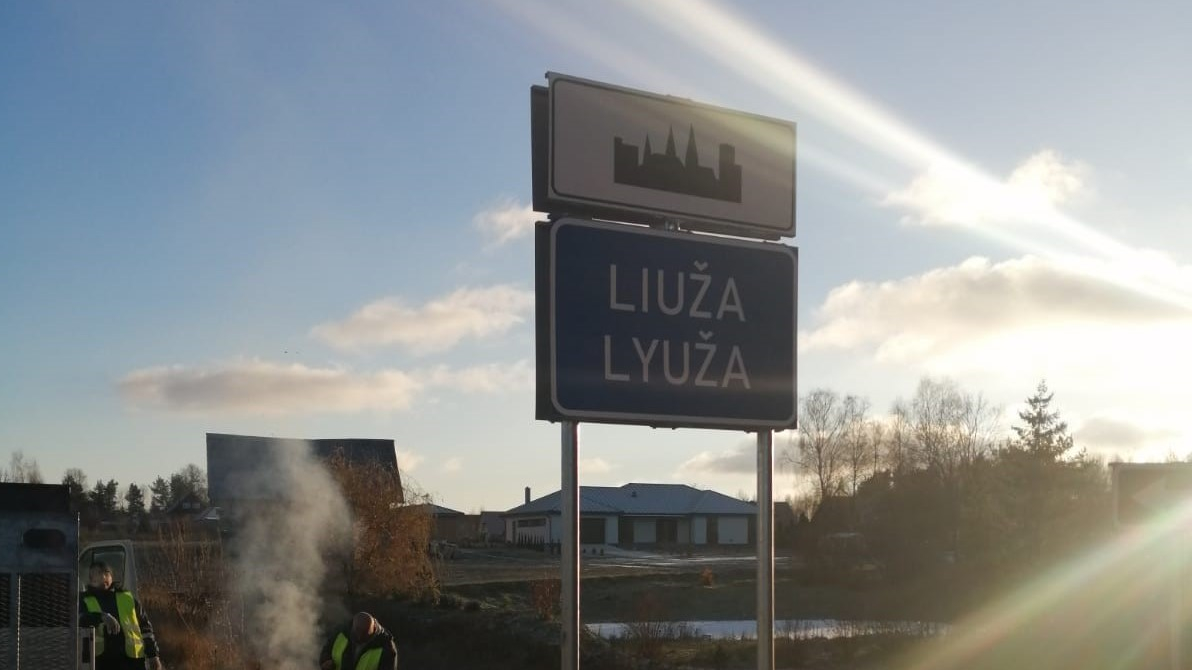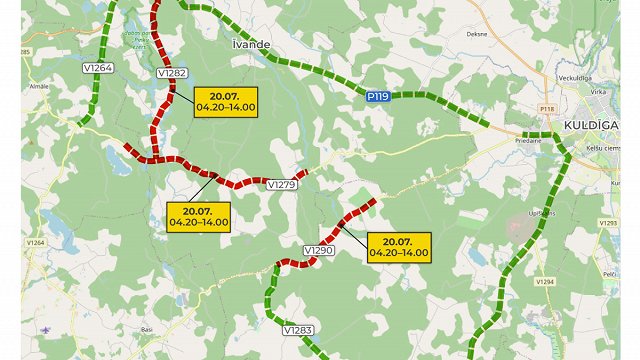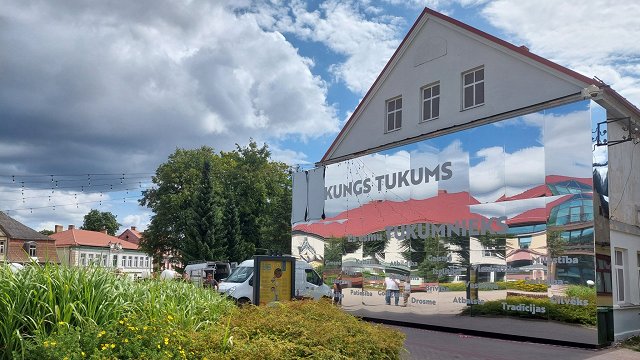The Law on Historic Latvian Lands begins with the words “the cohesiveness of the Latvian nation …”. However, it could not be applied to the disputes in society and on social networks concerning one of the first measures of the Latvian plan for the development of historical lands and cultural premises – the installation of road signs with the names of populated areas, towns or villages in Latgalian and Livonian written language.
Some of the comments from social networks read:
“In such a small country, the principle of one language should be respected.”
“It feels like that sign is running right in your face. Good thing it's in Latvian first, not Latgalian.”
“Local governments have a very big hole on next year's budget, but this is how the money left behind is wasted.”
In the comments, criticism alternated with support for road sign installation. Those surveyed by Latvian Radio welcome the Latgalian signs.
“Yes. We need Latgalian too.”
“I think it is necessary – both Latvian and Latgalian. It improves brain function.”
One of the most common causes of concern for residents is that this is a waste of resources at a time when municipalities need to tighten their belts. Tālivalds Vectirāns, Director of the Road Infrastructure Department of the Ministry of Transport, said that municipal funds are not spent on road signs: “These signs shall be set up from a dedicated national budget program intended solely for that purpose.”
The installation of signs is determined by both the Law on Road traffic and the Law on Cultural and Historical Lands of Latvia, therefore the representative of the Ministry of Transport does not see the need to co-ordinate it with local governments.
The decision on the writing of the Latgalian signs was taken by the Latgalian Language Sub-Commission of the State Language Center, in which linguists, philologists, and teachers of the Latgalian language were active. Māra Mortuzāne-Muravska, a linguist at the State Language Center, explained that the Commission was based on spelling rules and speech from locals.
“There are a lot of varieties in Latgalian. Even as part of one small area, people tend to speak quite differently with greater or lesser nuances. However, the Latgalian writing language does not reflect all the varieties, it is based on a few, you cannot take everything into account. That's why people have this anger, too, that I'm not speaking like that, I'm not saying that. But it is not possible that the specificity of each village could be reflected in that language of writing,“ explained Mortuzāne-Muravska.
A couple of typos have also been observed on the already installed road signs. Latvian State Roads promised to replace those signs by the end of the year.
More than 200 road signs will appear on Latgale roads by the end of the year.
Meanwhile, it is planned to install 22 Livonian signs in North Kurzeme. According to Valts Ernštreits, head of the Livonian Institute of the University of Latvia, residents' mood is positive.
“North Kurzeme expects as a thing that will bring a great contribution both to tourism and to the development of the whole region, [..]” Ernšteits said.
This is a historic moment when the cultural and historical heritage is brought to life at a national level. Especially since, in the recent past, municipalities wishing to write street or village names in Latgalian faced various legislative restrictions. As promised by the Ministry of Transport, road signs will continue to be placed in the historic languages for the next two years.



























